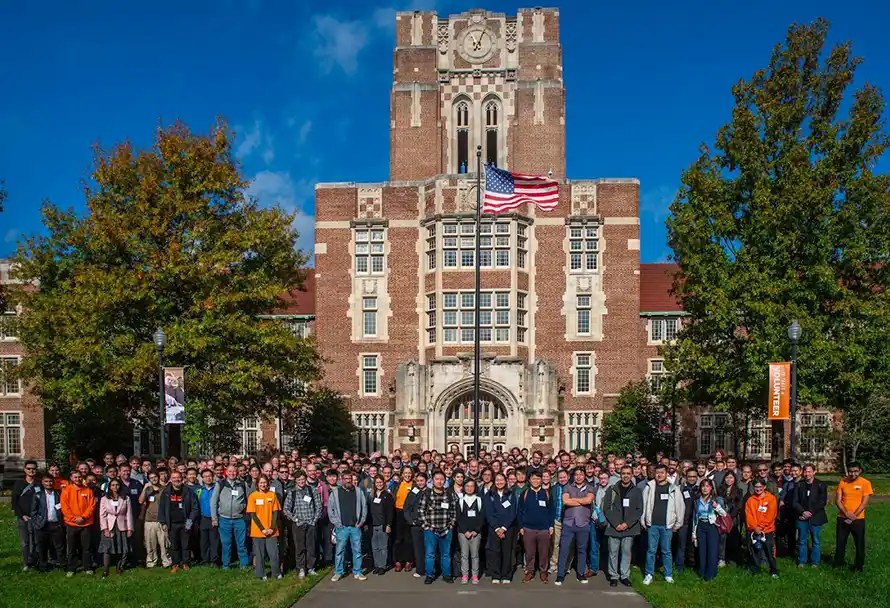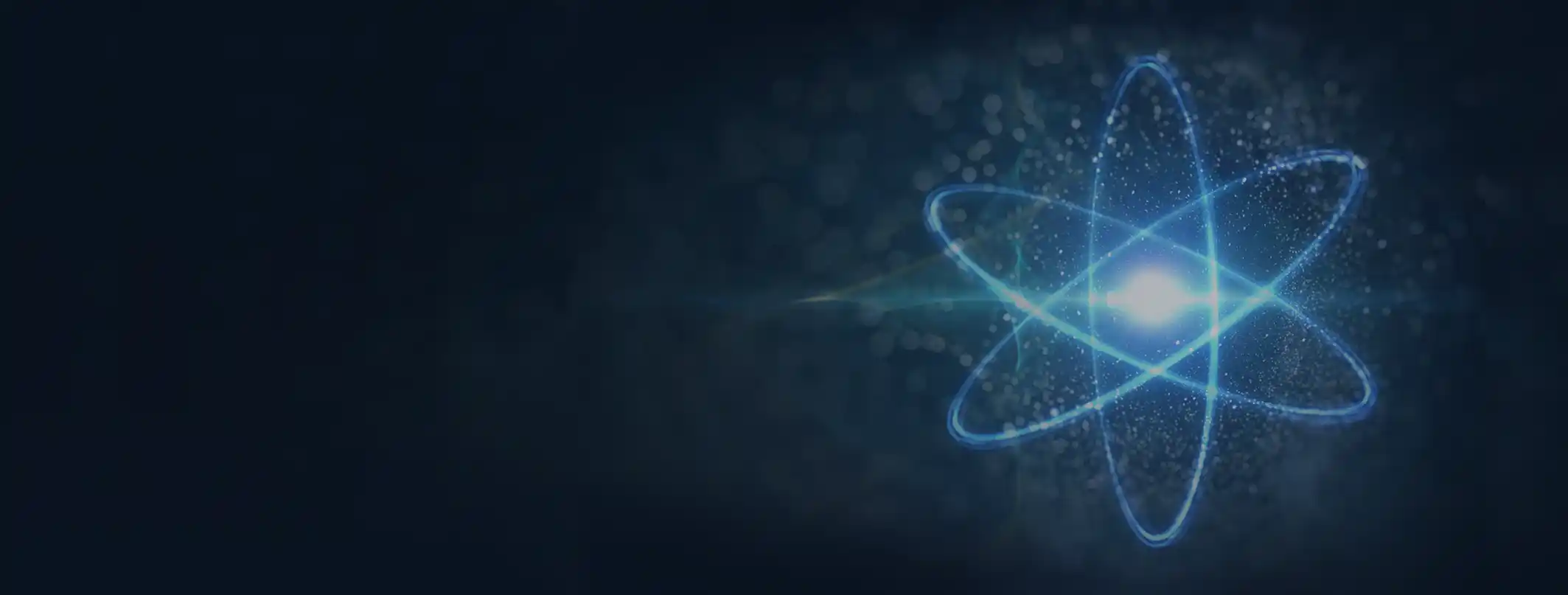The (Particle) Detectorists

If scientists want to know what makes up matter they have to sort and study the particles that compose it. That effort requires precision detectors. UT Physics and Oak Ridge National Laboratory (ORNL) hosted the 2024 Coordinating Panel for Advanced Detectors Workshop (CPAD) so physicists could exchange ideas about designing, building, and using these systems to explain how the universe works.
Some 260 participants attended the meeting, which ran November 19-22. With sessions covering topics from fast timing detectors to detector mechanics, they learned what works and what the next steps might look like in particle detection. They also had an opportunity to tour ORNL. Tova Holmes, an assistant professor of physics and a member of the workshop’s local organizing committee, explained why this research matters to everyone—not just scientists.
“Advancing detector technology drives our understanding of the universe,” she said, “but these detectors are also one of our most valuable contributions to society as particle physicists: modern medical scanning technology, nuclear non-proliferation technology; all of these emerge directly from particle physics. The CPAD workshop helps the community consolidate around the most promising ideas and drive them forward.”
In addition to the parallel and plenary sessions, students had the chance to share their research in a poster session, where UT’s Adam Vendrasco won a best poster design honorable mention for his project “Containerization of the Burn in Box Software for the CMS Outer Tracker Upgrade.” As a member of UT’s Compact Muon Solenoid (CMS) group, he’s part of a particle physics kinship that marked both loss and celebration during the week-long gathering.
A special memorial session honored Ian Shipsey, a foundational member of the community who passed away suddenly a month before the meeting. Among many contributions across the United States and Europe, Shipsey served as chair of the CMS experiment collaboration board, defined Fermilab’s Large Hadron Collider Physics Center, and was a founding chair of the CPAD organization—helping shape the scientific landscape students like Vendrasco are still exploring.
The workshop also hailed the 50th anniversary of the Time Projection Chamber (TPC): physicist David Nygren’s innovative design to study tens of thousands of particles from a single collision event. A special plenary session included contributions from Nygren and leaders in the field who continue to use the TPC for discoveries today. A reception at the Sunsphere (with our own Bains Professor Steven Johnston signing on as DJ) was part of the celebration. Not to be outdone, Assistant Professor Larry Lee, Professor Norman Mannella, and local musician Dave Slack helped provide the musical backdrop for a closing banquet at the Knoxville Museum of Art.
Lee, who, like Holmes, invested hours of work in the event as part of the local organizing committee, had no doubts the effort was worth it.
“We were honored to host this important conference here on campus, bringing many of the world’s leaders in particle detection to Knoxville,” he said. “We had the opportunity to show the community the amazing research happening on campus and at ORNL, drive these historic special events, and plan for the future of particle physics. Not only did UT have a seat at the table; the table was in our living room.”
